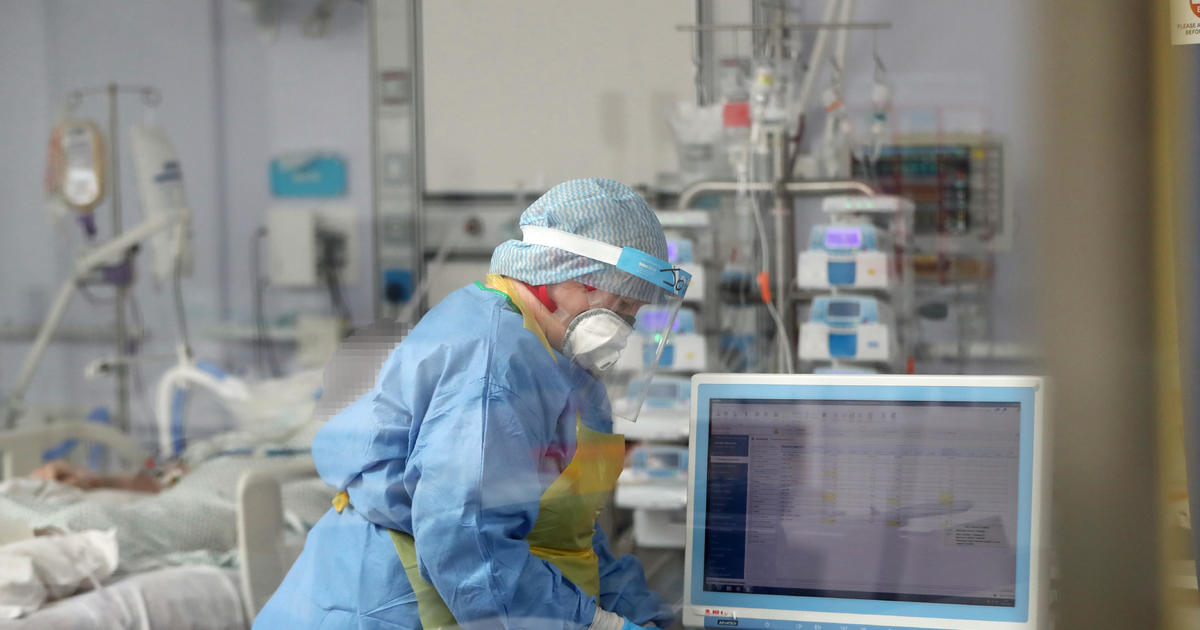
A new coronavirus study out of the United Kingdom found troubling signs of brain complications in patients with severe COVID-19.
The study, published in The Lancet Psychiatry journal, looked at 153 patients who were hospitalized with severe cases of the disease, and found that 125 of them experienced a range of neurological and psychiatric complications that may be linked to the coronavirus.
“The patients survived, but they survived with residual effects of having had the nervous system affected by this virus,” Dr. Bob Lahita told CBSN anchors Vladimir Duthiers and Anne-Marie Green on Friday.
The most commonly reported complication was stroke, occurring in 62% of the patients. Of the 77 reported stroke cases in the study, 57 were caused by a blood clot in the brain, nine were caused by a brain hemorrhage and one patient’s stroke was caused by “inflammation in the blood vessels of the brain.” The majority of the strokes occurred in patients age 60 or older.
About a third of patients in the study experienced “an altered mental state such as brain inflammation, psychosis and dementia-like symptoms,” including signs of confusion or changes in behavior.
“Altered mental status is common in patients admitted to hospital with severe infection,” the study notes, but adds that the researchers “observed a disproportionate number of neuropsychiatric presentations in younger patients.”
Twenty-three of patients with an altered mental state were diagnosed with psychiatric conditions — the “vast majority” of which were found to be newly developed. However, researchers say it is possible some may have been simply undiagnosed before the patient developed the virus. Around half of that group were under 60 years of age.
“With regards to age, it is clear that people who are older are not going to do as well as people who are younger,” Lahita said. But some younger people develop severe illness as well.
“We simply don’t know who will be infected that will die,” he said. “And we in the scientific community believe it has to do with immunogenetics — that means your inheritance of a certain kind of immune system which may make you susceptible to really doing badly once you’re infected.”
Researchers say the high proportion of younger patients diagnosed with these brain complications could be due to a higher chance of them being referred to a mental health specialist after showing signs of an altered mental state, while the same changes in older patients could have been more likely attributed to delirium and “not investigated further.”
The University of Liverpool’s Dr. Benedict Michael, one of the study’s lead authors, called the study an “important early step” towards unraveling the link between neurological complications and COVID-19.
“We now need detailed studies to understand the possible biological mechanisms underlying these complications so that we can explore potential treatments,” he wrote in a press release about the findings.

